- Latest articles

Unmindful Grumblings
Recently, I caught myself complaining about a matter so trivial that it would never affect my life. I had to remind myself to stop and keep the promise I made to Our Lady many years ago, amidst the deprivation and poverty of the refugee camps in Bosnia–Herzegovina.
Chastising myself, I apologized to God and set out to thank Him for every blessing. Later that evening at Mass, I prayed, “Lord, my complaints must hurt You when You have been filling my days with grace, blessings and gifts. I must seem so ungrateful to You.” Tears filled my eyes as I reflected on my selfish demands. When I contemplated the joy my loving Father’s abundant gifts had aroused, I felt guilty for grumbling.
I renewed my resolve to thank God throughout the day, in spite of petty irritations. How could I separate myself from disappointment when I did not get my own way or when God did not answer my prayers in the way I expected?
Count Those Blessings
God, our Father, encourages us to accept what we receive, rather than entertaining big expectations and indulging ourselves in discontent. Often, I have been more blessed when Our Father did not give me what I asked for, because it would have been detrimental to my life. Now, I am very grateful for the occasions when God gave me something better. Although I had to curb my impatience when I had to wait, invariably there was always a far better outcome when I let God work it out.
Gift of Tears
Sitting down before the Blessed Sacrament last week, I decided to make a mental list of all the extraordinary blessings God has given me since I began a pilgrim journey with Our Lord and Our Lady in the new millennium.
I began thanking God for giving me the courage to face my fears and accept responsibility for the consequences when I was at fault. When I recall the early days after my first trip to Medjugorje in 1998, I was filled with fear. When I had big decisions to make, I sat in adoration of Our Lord every day for months until I felt reassured that Jesus would look after me. When I faced those tough times, I knew it would never be easy but by frequently repeating, “Jesus, I trust in you,” I felt an extraordinary grace and calm envelope me that was not self-generated.
As I progressed spiritually, I contemplated the sorrows emanating from dark and deep places in the recesses of my mind—places I never wanted to go. I began a long and arduous journey of forgiveness toward my abuser, which culminated many years later in a prayer for his soul as I knelt beside his grave. The gift of tears resolved the trauma I had held inside me and gently opened up my respiratory system.
My childhood stammer began to dissipate. By 2005 it had been healed, and my life became free and enriched with confidence. For the first time, I was able to speak in public without experiencing high anxiety levels.
Miracles Happen!
Throughout all those years, I was sustained by grace to serve the poor and displaced in Bosnia–Herzegovina. In December of each year, displaced families moved into their new homes—our gift to them. As I watched the children growing in character, strength and confidence and the adults settling down to a dignified life once again, I saw miracles happen when people gave without counting the cost. I was in awe at the amazing things God did for His poor and forgotten. His generosity is matchless.
In the richness of God’s mercy, the gaping hole left in my heart because I could not have children was filled with the tender love from little hearts all over Bosnia–Herzegovina.
When I left behind the hurt, hatred, anger and disappointment, I encountered love everywhere. Because I walked with God I was no longer afraid to accept embraces and affection from the most vulnerable of the displaced people, particularly those who had mental health problems and physical deformities. As my trust in Jesus grew, I experienced Him in every situation. Sometimes my heart burned with love as I opened it to comfort and care for the broken, sick, maimed and dying.
Never Give Up Hope
My time in Bosnia–Herzegovina was the most enriching 15 years of my life. Our Lord, Jesus, and His Blessed Mother, Mary, had taught me about the primary importance of the salvation and conversion of souls and how to forgive, to love and to accept people for who they are. I pray for all God’s children regardless of their beliefs.
The steadfast faith amid the suffering of Catholics in Bosnia–Herzegovina inspired me to tell their stories in “Journey of Ten Thousand Smiles.” I did not know how to start but after three years of prayer God showed me how to relate the harrowing traumas they had experienced without being repulsive. He gave me the descriptive words and detailed memories to put their compelling stories onto paper. It still amazes me that “Journey of Ten Thousand Smiles” has gone around the world, bringing incredible peace and hope to many people who had been unable to accept God’s will in their lives.
Even in these hard times, when so many good values we have known in our lives are being challenged, shattered and discarded by many, we must never stop praying or give up hope. I look back and ponder on the miracle that the people of Bosnia–Herzegovina witnessed in their darkest days—then marvel at the Father who kept His promise to His children.
Let us move forward into a new year together in prayer, hope and faith with a mother we are blessed to call Our Lady and a Father who is infinitely full of mercy and love. He wants nothing more than salvation for all His children.
'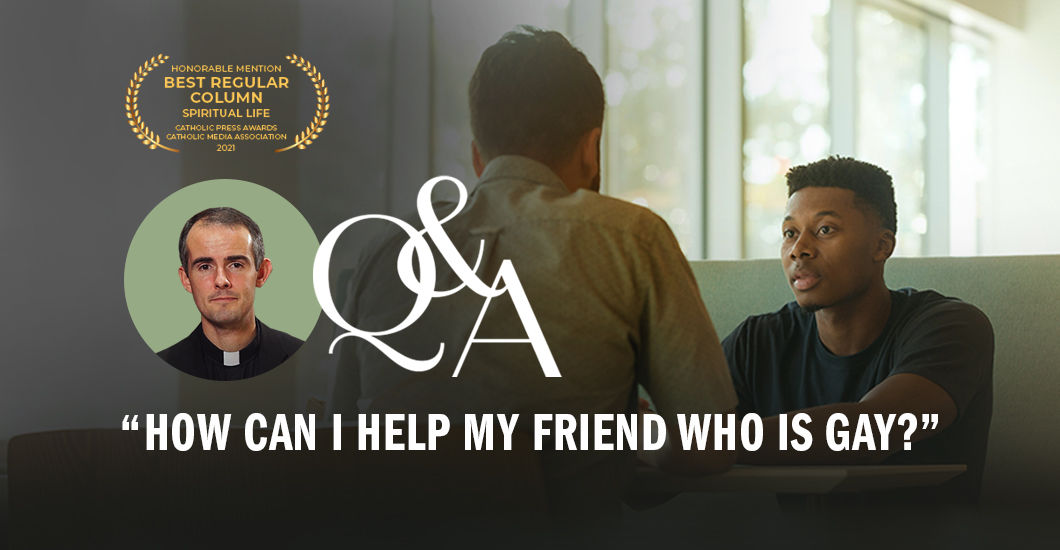
Question: How can I help my friend, who just came out as a gay man and wants to marry his partner? I want to support my friend but I also want to be true to my Catholic faith.
Answer: This is a question I am frequently asked. Many people have a friend or family member who identifies as gay or lesbian. How should Catholics respond?
The first answer is to love her/him. If someone “comes out” as gay or lesbian, it does not change who she/he is at her/his core. She/He is created in the image and likeness of God. He loved her/him so much, that He suffered and died on the Cross to atone for her/his sins, as well as ours. He invites both of us to share in His redemption. Since God has loved us so much, He entreats us to share that love with our neighbors.
However, as Saint Thomas Aquinas reminds us, love is “willing the good of the other.” We always want the other person’s best interests, and the ultimate best interest is her/his salvation. So, to love her/him truly requires that we act in a way that aids her/his salvation.
How can we do that? First, we pray for her/him. We pray for her/him not as if we were superior— for Jesus had some rather sharp rebukes for the Pharisees who looked down upon others. Rather, we pray for her/him as one sinner for another. As the Protestant pastor D.T. Niles once said, “[Christianity] is about one beggar telling another beggar where to find bread.” We, who have encountered and fallen in love with Jesus—and are seeking to conform our life to His—pray for others that they may find the same healing and mercy that we have received.
Second, we try to put our own lives in order so that our bad example does not cause others to fall into sin. In particular, if we are married we live out our marriages with joy and openness to life. In a world where the evil one loves to attack marriages (since a good and holy marriage is one of the clearest representations of God’s love on Earth), we, as Christians, must fight for the dignity and sanctity of our own marriages. This is a powerful witness to the world, which often sees only distortions of marriage and the cheapening of God’s great gift of sexuality.
Finally, when the time is right, we gently and lovingly share the good news of Jesus, including His good news about sexuality and marriage. The Gospel permeates every aspect of human existence—our friendships, our finances, and even our bedrooms. It is truly good news! We believe that God created sexuality and marriage for two specific purposes (to live out a one-flesh union between a husband and wife and to be open to the gift of life); these purposes are not burdens but pathways to our own happiness! We must share the Church teaching on sexuality and marriage, not as a list of condemnations but as a teaching that authentically fulfills us as human beings made in His image.
It is possible to love the sinner but hate the sin. Jesus did that frequently. When we love the sinner, we pray for her/him to repent, we set an example of a life changed by the Gospel and we speak words of truth to her/him, in love.
'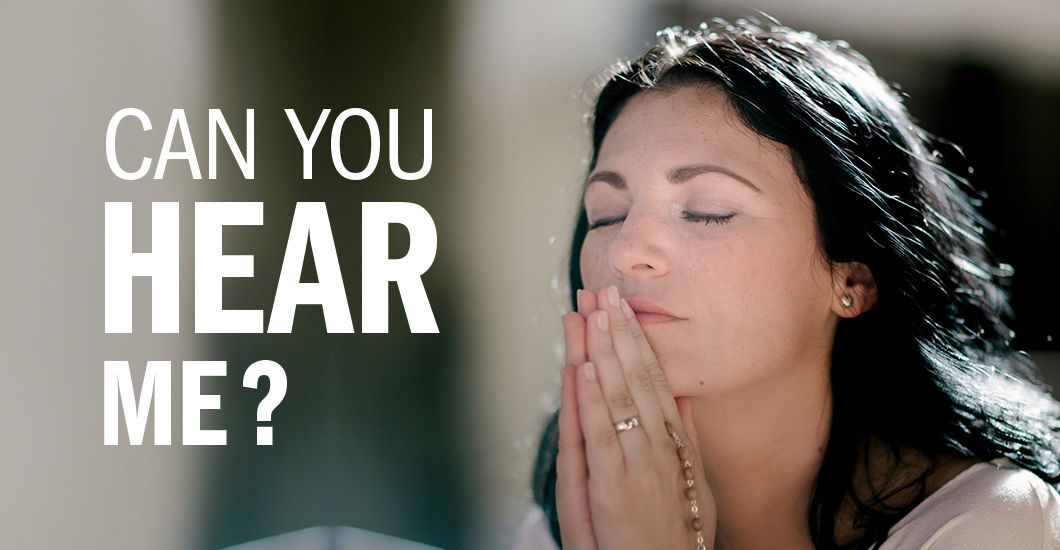
Ringing in the Ears
Time has passed like a whirlwind but I still cherish memories of the sweet innocence I enjoyed in my childhood. It was a time when little deeds were done out of pure love, and I embraced God above all things with great faith. Like many other kids I had an imaginary friend and He was Jesus. For me He was more than just an imaginary friend—He was REAL. I talked to Him all day about everything, even the most frivolous things.
In this busy world it is a pity that simple habits like walking with Jesus are nearly lost. Carried away by the tussles and hustles of life, we tend to turn to Him only at the most critical times while leaving Him out of our everyday lives. If you are feeling broken, the world says, stand up and keep busy. When facing failure, the world says keep moving. Rather than taking time out to revive with silent prayer, people resort to all kinds of distractions. It is no wonder depression is so prevalent. Drenched in the noise of entertainment and social media, we seldom hear what God is saying to us!
Does God Really Speak?
It happened while I was in the prime years of college life. I was blessed to be in a Catholic college that had a beautiful chapel at the heart of the premises. Daily mass, morning prayers, rosary and evening vespers were intertwined into a program of classes, assignments, projects and exams. We had a prayer group led by Jesus Youth, an international missionary movement at the service of the church. During one of the prayer meetings, our college mate Maria stepped in looking perplexed. We patiently listened to her prayer request. A close school friend had been admitted for critical heart surgery. Like us, she was in the final year of college, preparing for final exams and expecting a good placement when her health crashed. Suddenly she was stripped of all her dreams and doctors believed she only had a 30 percent chance of recovering completely, even with an operation.
We were deeply shocked to hear this news. The serene, happy atmosphere turned sober. I took the request to my heart and felt a strong urge to pray for this unknown friend. Literally, I took her case into my heart. Never have I bothered Jesus so much for anyone, not even for my personal woes. The next day was the surgery and my prayers doubled. Around 3 p.m. we had a break time and I could not sit in class anymore. I walked to the chapel, planning to recite the chaplet of Divine Mercy. It was eerily silent when I entered the empty chapel. Not following the usual routine of finding a corner, I strode to the front and began to pray. I could feel my heart wrench in pain. It seemed like something was wrong with my heart.
While tears flowed down my cheeks, I begged the Lord to heal her. As I poured my heart out to Jesus, I heard a thunder- like voice saying, “She will be alright.” Shocked, I almost fell. I looked around but no one was there. For a while, I could not grasp my experience but felt peace of heart. I also felt a shiver run down my spine. I quickly made the sign of the cross then returned to class; resounding in my heart was “He spoke to me!”
Unceasing Love of God
That evening, Maria came to us with a wide gleaming smile. I knew she was about to share the happy news. The operation was successful and, to the amazement of the doctors, our unknown friend recovered very quickly. I later learned that she had been placed in one of the best companies in the country. In his merciful love, God worked a miracle to preserve her life and allow her to keep pursuing her dreams.
Years later, this incident still gives me chills. Psalm 118, verse 5 resonates in my heart:
Out of my distress I called on the Lord; the Lord answered me and set me free.
This episode impressed on me the importance of praying for others. Prayer can unlock the amazing grace of God! God has chosen you and me to bestow a beautiful gift—prayer. A torrent of grace is showered when we pray for others!
A sheep rancher in Australia found that his violin was out of tune. Since he could not find another musical instrument to provide him the standard note, he wrote to a radio station asking them to strike that note. They did just that— stopped a program and struck the note. The sheep rancher caught it and retuned his violin so it could play beautiful melodies in response to the musician’s touch. Likewise, your daily quiet time can help you hear God’s “standard notes,” realign your life with His and put you in harmony with His way.
God speaks to all of us. He constantly speaks through sacred scripture, liturgy, people, circumstances and events. He may even speaks to us during times of prayer. All we need to do is spend some time with Him and listen!
Listen, let your heart keep seeking,
Listen to His constant speaking,
Listen to the Spirit calling you.
Listen to His inspiration,
Listen to His invitation,
Listen to the Spirit calling you.
'
Suffering is part and parcel of this life here on earth. None of us will escape its clutches. We march on, striving to “offer up” our sufferings in union with those of Christ’s on the cross.
However, this idea of offering it up may sound trite. We might intend to encourage others but when that advice is directed to us in our own sufferings it is often unpalatable. Redemptive suffering is all well and good, of course, unless we are the one actually suffering.
How do we find our way as we grapple with the weight of the cross on our shoulders and the splinter digging into our hands? How do we unite our suffering with Jesus’ instead of getting bogged down in the pain and despair?
Two Guides Along the Journey
In Hannah Hunard’s novel “Hinds Feet in High Places” the character Much-Afraid longs to escape the pain and suffering of her life in the Valley of Humiliation and join the Chief Shepherd in the High Places. To accept his invitation and live in the High Places she must embark on a long and arduous journey, accompanied by two guides, Sorrow and Suffering.
In this delightful allegory of the spiritual life Much-Afraid makes progress only when she learns to accept and rely on Sorrow and Suffering. It is the same for us. God presents us with daily opportunities to prune our wills until they are in accordance with His, yet we let many of these slip through our fingers for fear of suffering or sorrow. Once we accept that these are integral to our spiritual journey, we can make rapid progress.
Perseverance Wins!
When God presents our cross, we cannot be like Sarah Miles in Graham Greene’s novel “The End of the Affair.” She initially asked God to permit her to suffer: “If I could suffer like You, I could heal like You.” For a time, she felt peace of soul and mind. However, her prayer changed when she began to suffer: “Dear God, You know that I desire to want Your pain but I don’t want it now. Take it away for a while and give it to me another time.
” Instead, we should simply pray: Thank you for this pain. I give it to You, to use for Your glory.
It sounds simple yet it is a difficult prayer. Prayer in the season of suffering is often dry. It takes considerable effort but perseverance during difficult times results in enormous spiritual gain. Seek God in the midst of your suffering. Pray in both structured and unstructured ways. Recite a daily rosary. Go to Mass often and confession regularly. Spend time in contemplation, in conversation with God. Lay bare your heart and trust Him to see you safely through this storm.
You Are Not Alone
Jesus offers to carry our burdens: “Come to Me, all you that are weary and are carrying heavy burdens, and I will give you rest” (Matthew 11:28). He, also, had help in His suffering. Simon of Cyrene helped Jesus carry the cross to Calvary. Perhaps this was only a small help but it was sufficient to enable Christ to fulfil His mission and direct His tottering footsteps up the final slope to Calvary.
We do not have to undertake our suffering alone. Asking God for help in your season of suffering does not mean that you do not accept the cross He has given you. Asking for prayers or practical support might feel humiliating but perhaps this very act of humbling ourselves is central to God’s plan for us. Accepting suffering does not mean we have to carry all of it by ourselves. God has entrusted people to us—family, friends, clergy, colleagues, neighbors. This might be the very reason God introduced them into your life. Let them help you, especially if it makes you feel humiliated.
For the Greater Joy
When we are engulfed in a season of suffering it is difficult to look ahead to a time of joy, when the weight of our burden will be lifted. However, there is a truth about our crosses that we often overlook—the greater the cross, the greater the joy that follows.
Jesus accepted His cross willingly: “Father, if You are willing, remove this cup from Me; yet, not My will but Yours be done” (Luke 22:42). He also knew that once this suffering passed the glory of His resurrection would surpass the agony of the cross. In the midst of their despair, imagine the joy that filled the hearts of His followers when they saw Him risen from the dead. How much more joy did He experience, knowing He had fulfilled God’s will and redeemed the world?
The same is true for us. Someone in my own family had a mental health crisis that plunged us into sorrow and suffering for an extended time. Once that crisis abated joy swiftly followed.
At the close of “Hinds Feet in High Places,” the Chief Shepherd transformed Sorrow into Joy and Suffering into Peace. Much-Afraid was transformed into Grace and Glory. Nothing was impossible for Him. Imagine what He can do with our suffering.
'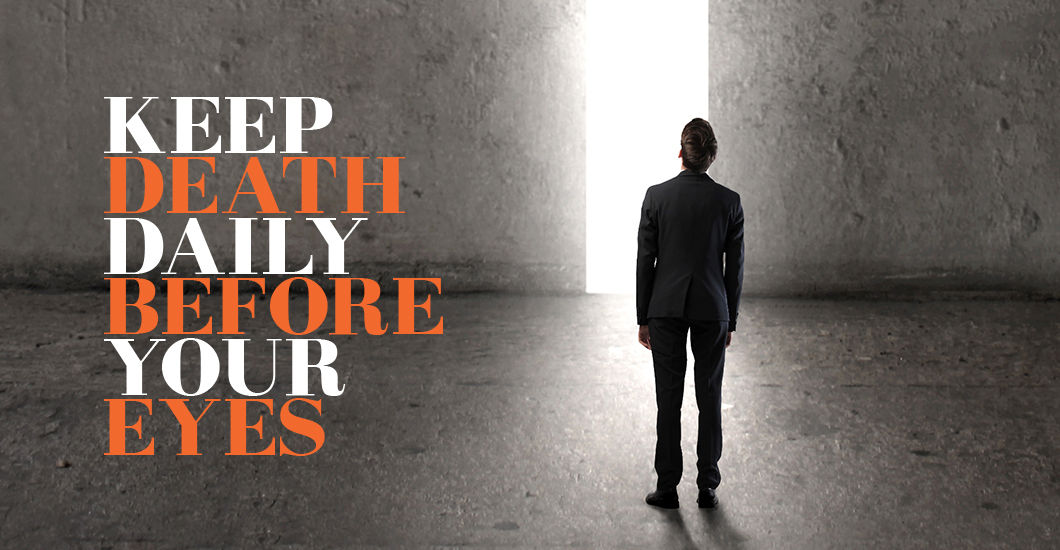
An Alternative to Mindfulness
“Keep death daily before your eyes.” At first glance, these words from Chapter 4 of the Rule of Saint Benedict make many uncomfortable, if not squeamish. Most prefer to push the “last things”—death, judgment, heaven, hell—out of their minds, dismissing them as antiquated notions with little relevance to modern life.
In light of the popular culture’s devotion to the “present moment” in the movement known as “mindfulness,” the daily remembrance of a dark future event looms as a contradiction. Upon deeper reflection, this seemingly morbid directive from a sixth century text is actually an effective Christian alternative to the ancient Buddhist meditation technique and discipline that is captivating the world. The church has not spoken definitively on mindfulness but those seeking authentic practice of a Catholic Christian meditation and discipline, focused on encountering Christ in every moment, will find a time-tested guide in the Rule of Saint Benedict.
Rising from the ashes of a disintegrating and strife-torn post-Roman Empire society, Benedictine spirituality had a strong sense of the importance of coming to terms with the possibility of death, at any moment, for practical reasons. The high mortality rate underscored the fragility of life and the unpredictability of its end—Benedict himself was nearly poisoned by some unruly monks. Paradoxically, Benedict and the other early monastics also knew that keeping death in mind daily would help monks and lay people alike live life more fully and in a detached manner. The remembrance of death, and the recognition of its immanence, could eliminate the mindless pursuits and superficial concerns that had preoccupied one’s life, thereby freeing the individual to attend to the things of lasting significance—the glory of God and salvation!
The Power of “Now”
The goal of Christian life on Earth is to make every moment count toward heaven. At every instant, God gives Himself to His creatures, calling us to do His will in the ordinary matters of each day. Every thought, every word and every action is either a step closer to God or a step away from God. The direction is determined by the promptness and degree of our response (or lack thereof) to His voice. A fervent prayer, a kind word, a cordial smile, a warm thank you, a heartfelt I love you, a sincere I am sorry, a service cheerfully rendered, a duty faithfully done, a fault humbly confessed, a mistake forgiven, a judgement withheld, a gesture restrained, a murmur suppressed, gossip avoided, a worry surrendered, a sacrifice offered, a truth proclaimed, the name of Jesus praised. Each has everlasting consequences. As we work out our salvation in the community of persons and moments in which we have been placed, God alone knows how far that one prayer, that one word, that one act will influence all eternity.
Our habitual response to God’s call requires constant attentiveness to the present moment where God speaks. As Saint Paul exhorts, “Now is the acceptable time, now is the day of salvation” (2 Corinthians 6:2). As Jesus warns, “Stay awake, because you do not know either the day or hour when the Son of Man is coming” (Matthew 25:13). Keeping death daily before our eyes snaps us out of our complacency and heightens all of our senses, fine-tuning our ability to hear God’s still, small voice with the ear of our heart in the moment.
The Clock Keeps Ticking
For just as God uses the common things from the world to reflect His inward presence, He gives us graces in the moment to help us accomplish His will. Like the hands of a clock marking the minutes toward the last hour of the day, the grace of God moves us in each moment toward the hour of our death, when we shall pass into eternal life.
Saint Benedict was not the only prominent religious figure to value a meditation on death. Saint Francis of Assisi added these lines to “The Canticle of the Sun” before dying: “All praise be yours, my Lord, through Sister Death, from whose embrace no mortal can escape. Woe to those who die in mortal sin! Happy those she finds doing your will!” During her “Showings,” medieval mystic Julian of Norwich prayed for a physical illness, to the point of death, to be “purged by God’s mercy, and afterwards live more to His glory,” which she did for many more years. From his “Sermon Notes,” Saint John Henry Newman preached the following: “Every morning we rise nearer to death … As the clock ticks, we are under sentence of death … Seek the Lord therefore … He is here.”
A lay Catholic who humorously expressed an appreciation of death’s swaying power was 20th-century American writer Flannery O’Connor. In “The Misfit” she wrote: “She would’ve been a good woman … if [there] had been somebody there to shoot her every minute of her life.”
Made for heaven, we are all misfits. Fortunately, Saint Benedict’s moderate approach of meditating on death points us daily in the right direction home!
'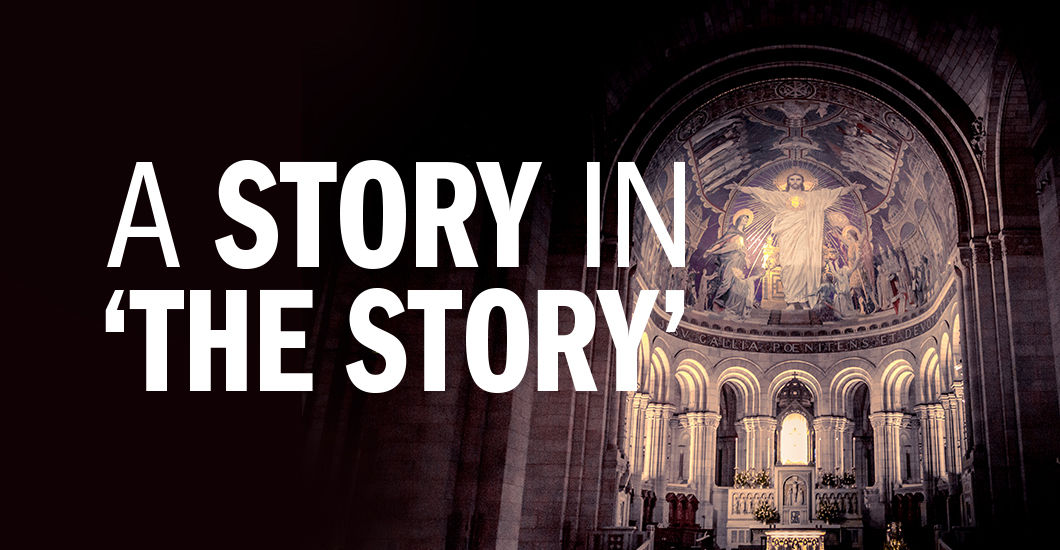
A Comical Touch
Sitting down to a blank screen, I chuckle as I recall many amusing moments where grace has appeared in the midst of farce. It is difficult to pick just one story to share. The truth is, my whole life is a story, since the day God called me into being. “You formed my inmost being; You knit me in my mother’s womb” (Psalm 139:13) I have had one encounter after another with God. How do I choose just one?
Looking back, this series of events seemed to be comically orchestrated by God to teach me a lesson. Although I know that God is always with me, the time I spend quietly in adoration before the Blessed Sacrament is fundamental for my well-being. Spending time alone with my Lord enables me to recharge my spiritual batteries. This particular day, I had planned to spend an hour with God in the Adoration Chapel. I drove into the parking area and was pleased to see so many empty parking spaces. “Aah, perfect,” I thought, “a nice quiet hour with Jesus all to myself!” I grabbed the prayer bag I had equipped with a Bible, a journal, prayer books and a rosary and headed to the Adoration Chapel.
Happily on a Mission
At this point, I felt proud of myself for having carved an hour out of my busy schedule for adoration, for having gathered the appropriate adoration materials and for being on time. I was pleased that God had rewarded my endeavors by clearing the chapel for my arrival. However, as I turned the corner and walked up the pathway, I saw two women engaged in an intense conversation directly outside the chapel door. Had they not seen the sign—Adoration Chapel, quiet zone?
I was happily on a mission and I only had an hour. Jesus was waiting for ME. But wait! … There were two other people in the chapel … Where did they come from? No matter, I was still happily on a mission and I still only had an hour.
The Chapel is small and seats approximately 25 people. Choosing the right seat was crucial if I wanted to avoid interrupting other adorers in their prayer or avoid being interrupted by them. I scanned the room, spotted the perfect place, settled in and knelt to pray. Ugh! Although I was desperately trying to focus on my prayer, the restlessness of the other people began to distract me. One rustled her papers and books and the other repeatedly searched the contents of her purse or readjusted her chair. “Block it out, block it out” I repeated to myself. Meanwhile, the conversation between the two women outside seemed to get louder and more animated. Calmly, I got up, opened the door and quietly placed my pointer finger to my lips. Common courtesy would surely dictate that they would take their conversation elsewhere. Yes, they moved … but only a few feet to the left! Sighing, I returned inside.
Heaping Up
I knelt down again, closed my eyes, placed my head into clutched hands and tried to pray. As if on cue, another woman walked and who chose to sit in the seat next to me. Although she settled in fairly quickly, I thought I heard her sucking on hard candy. The candy clicked against her teeth in the relatively quiet room. A few minutes passed and it occurred to me that she was taking a long time to finish this candy. I discreetly glanced her way. Immediately, I took a second glance to verify my first impression. “Oh my!” It was not candy in her mouth. She had false teeth and clicked them quite vigorously, in and out of her mouth, as she prayed. I quickly faced forward. A little stunned, I just knelt there, partially wanting to laugh and partially wanting to cry as MY hour was slipping away.
Distracted by thoughts far from adoration, the frustration of MY hour not proceeding as peacefully and spiritually as planned began to wear on me. Breathing deeply, I helplessly sat in the Lord’s presence. One of the other adorers took her rosary out to pray. She was an elderly woman and seemed unaffected by the things that distracted me. “How sweet,” I thought. Perhaps if I took her lead I could focus properly on the prayers and mysteries of my own rosary. She began but prayed in an audible whisper in a foreign language with a choppy cadence. It was impossible to follow her rhythm; it was impossible to follow her language. It seemed impossible for me to focus on my rosary and pray to MY Lord, who was certainly waiting to hear from me.
One of the women who had been talking outside came into the chapel. She approached me and apologized for talking loudly. I politely nodded while smiling at her and closed my eyes to concentrate on my rosary. As luck would have it, she sat directly behind me, noisily settled in, pulled out her rosary and began to audibly whisper her prayers in my other ear. At this point I thought of yielding MY time to the circumstances but the hour was not over yet.
A few minutes later a sister of the other original adorer came in looking for her sibling. She recognized me and asked if I could stay in her sister’s place. I quietly nodded. Overcome with gratitude, she engulfed me in a big hug. As her powerful perfume and copious hair spray overwhelmed my senses, I gasped for air and tried to hold back laughter at the same time. This could not be happening!
Nothing’s a Coincidence
The cherry on the sundae came as the two sisters exited the Adoration Chapel and the regular Friday lawn service showed up, complete with back-up beeping trucks, lawn mowers, leaf blowers and chatty gardeners. Out wafted the heady aroma of perfume and hairspray and in drifted the sweet smell of freshly cut grass.
What was happening here? Why were so many noises and disruptions obstructing the peaceful hour I had planned to spend with Jesus? Did these people not realize how selfish they were being? No sooner had these thoughts crossed my mind when a light bulb turned on in my head and heart. Perhaps God was using these back-to-back disruptions to speak to me. What could He be trying to teach me?”
I reflected:
“Humility” popped into my mind. Having such a busy schedule, surely God appreciated the sacrifice of MY time. Although this might be true, I could see my attitude was distorted. What was I thinking? Although it is my will, it is His time. He gave it to me. It was not me giving Him a gift. It was He who gave me the gift of Himself in the Blessed Sacrament. Furthermore, every minute of every day is His gift to me.
In the midst of such a busy life, I was inordinately proud that I had carved out an entire hour to spend with my Lord. However, I felt like Cain, in the book of Genesis, who gave God his leftovers. I did not give God the best of me, I gave Him my leftover time. My self-satisfaction left and I felt shame wash over me.
Prepared with all the appropriate tools for an hour of adoration, I did not consider that He might want me to just BE with Him, like a friend. “Be still and know that I am God” Psalm 46:10. Do I have eyes to see and ears to hear when He tries to get my attention? I did not have to plan the entire hour as if it were a meeting with an agenda. I just needed to BE. Although He wants me because He loves me, it is not He who needs me, it is I who need Him! Additionally, I should not have entered the Adoration Chapel as if I were looking for an auditorium seat but with reverence for the Holy ground I had entered.
Although I have accepted Jesus as my Lord and Savior and truly love Him, the fact is He does not belong exclusively to me. Each person who came to this Adoration Chapel came to be with Him. I acted like a selfish child demanding parental attention to the detriment of other siblings who also had needs.
Broken Silence
Many other thoughts surfaced as I sat in quiet shame. The heaviness began to steal my joy. Then suddenly, and almost as if orchestrated, everyone left the Adoration Chapel, one by one. I was going to be alone with Jesus for the last 10 minutes of the hour. God in His mercy and tender love knew my sorrow and gave me the longing of my heart. At last I was alone with Him!
I began to well up as I read the scripture etched on the Adoration Chapel door. It said, “Come all who are weary … and I will give you rest” (Matthew 11:28). In my heart, I knew I was not His only child seeking consolation from Him in this chapel. Internally I smiled, humbly sighed and counted myself as one of the many as I said aloud, “Okay, Lord, I am here and I am weary.” After a few minutes of alone time I am pretty sure I heard Him chuckle as MY cell phone rang and broke the precious silence.
When recalling the abundant grace, mercy and forgiveness Jesus patiently bestows upon me as I falter through life, I am awed by His great love for me. I am blessed because He knows my love language and uses humorous situations to catch my attention so He can patiently teach me to love as He loves.
From the moment of conception, we become part of “The Story” in God’s Book of Life. Often, we chalk up our encounters with God to coincidence, happenstance, annoyances or fate. However, if we realize how intricately our lives depend on God it suddenly becomes clear how He reaches out to us so we can become aware of His presence in our lives. He tells us, “Behold, I am with you always, to the end of the age” (Matthew 28:20) and “I will never leave you or forsake you” (Hebrews 13:5).
I recall the words of Saint John: “But there are also many other things which Jesus did, which, if they were written every one, the world itself, I think, would not be able to contain the books that should be written” (John 21:25). I understand that passage a little better today and feel a kindred spirit with Saint John as I look forward to accumulating more anecdotes of God’s story interwoven with mine.
'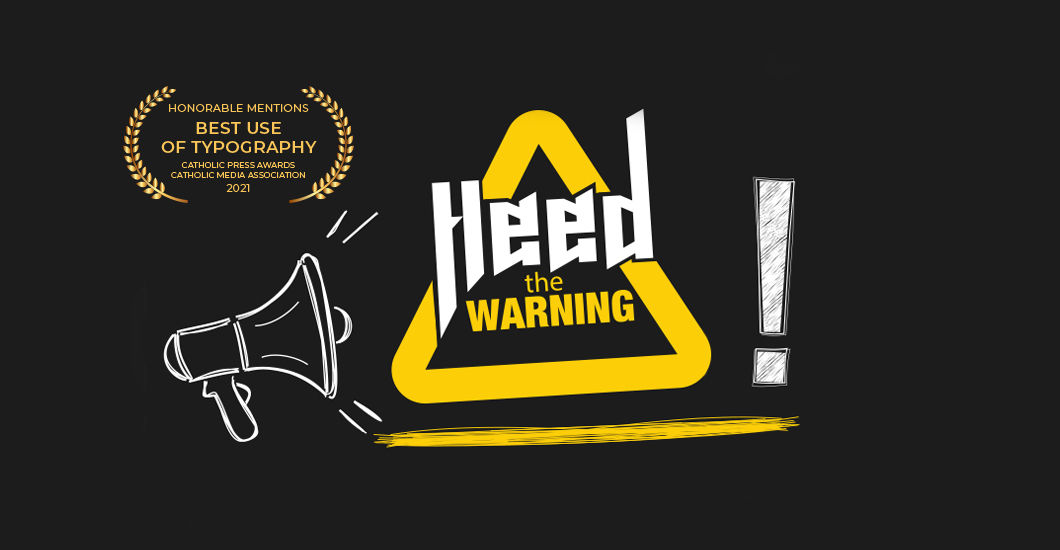
My head and body ached and my mind was weary with sorrow. The last image of a young man’s life lingered and would not leave my thoughts as I tossed and turned between nightmares.
Sunshine and Laughter
The weekend began cheerfully. My sister’s wedding had brought the extended family together, so we were all making the most of our time together. Taking advantage of the glorious, summer day, we headed out for a swim at Crow’s Nest Falls National Park. A pleasant walk through beautiful bushland was punctuated by a stop at the lookout to admire the view. Thirty meters below the tumbling cascades, a waterhole glittered invitingly in the sunshine.
Clambering down, we spent a golden day laughing and swimming in the cool, clear water at the bottom of the waterfall. The children delighted in jumping off rocks into the deep water, while some of the local teenagers repeatedly climbed the cliffs for more daring leaps. It was a deeply satisfying day which made me feel that “God’s in His heaven—All’s right with the world.”
When Tragedy Strikes
Until the joy and frolics were suddenly shattered by an enormous splash as a young man jumped from the lookout thirty meters above. He didn’t come up again. The trembling of a small bush on the water’s edge was the only sign he had ever been there. Desperately, we dived again and again, straining our eyes to peer through the water, vainly stretching out our hands hoping to catch hold of him.
But it was all futile. The shallow edge dropped off too deeply for our bursting lungs and aching ears to reach. Even the police divers with all their equipment would find nothing for another three days. His family grieved as his broken body was discovered eight meters below the surface.
Was There a Second Chance?
What could have prevented this tragedy? He didn’t listen to the ranger who came down to advise us about where it was safe and unsafe to jump. He didn’t learn from a near miss when he struck a shallow rock with his hand as he leapt into the water. He scoffed at the appeals of parents when he nearly landed on their children. He didn’t heed the danger signs at the lookout, warning that jumps from there had previously resulted in death and serious injury. He climbed around the barriers impeding his progress. He ignored the pleas of a friend and observers at the lookout who begged him not to jump and told him he had nothing to prove. Perhaps the friend who urged him on by telling him that another friend had done it before, will have restless nights. But, let’s not be too quick to point the finger. How many of us forget that God’s laws and civil laws are not made to annoy, but to protect us? Like any loving parent, God tries to save us from suffering damaging consequences by warning us of dangers. How many warnings and near misses do we ignore? What does it take to make us realize that sometimes it is our fault and we are the ones who need to change? How often do we act without thinking of how our actions will affect others? Why do we value fleeting pleasure above the eternal happiness of our own immortal souls?
At his funeral, his brother said that he would not have gone home satisfied if he hadn’t attempted the jump. I wept as I thought about how glad his sorrowing family and friends would be if he had simply gone home with his desire unsatisfied.
'
We make a serious mistake by seeking the gifts rather than the giver of the gifts. We do not simply “use” God for what we can receive. If this was the case, then we would just give up on prayer and give up on God, which is what many people do. They yearn for that instant gratification that the world offers in so many ways. This is a very childish way to see prayer. We often look for God—when we want something and think we can turn on God—as easily as we get water from a tap.
We refuse to wait for fast food. We get frustrated in traffic. If the internet is too slow we start yelling at the screen! Let me be bold. Do not be afraid to “waste time with God” because it is not wasting time. Rather, it is the best possible use of our time. What better use of God’s gift of time could there be than to use it in praise of the Creator of time?
Think of the times when we received gifts of new clothes from our parents. Did we not make sure they saw us wearing them to show our appreciation? Do we not use things of this world for the purpose for which they were created? We use water to sustain our life and our world. We use the sunlight to receive warmth, grow things and store energy. We ought to use the gift of time to return God’s love, to develop the gifts He has given us and to use them to serve Him and our neighbours. Just because we do not see instant results we should not give up.
Think of the example of Saint Teresa of Calcutta. We know that for much of her life her prayer was dry and unrewarding. If she had given up, how much poorer would the world be? There is merit in persevering and looking beyond the rewards of this life and the quick fixes and the “buzz” we often expect. This explains why so many people turn to unhealthy behavior and get stuck in patterns of sin. When we receive stimulation from something (or someone) we can become addicted to the response. It develops an addiction in us and thereby we seek it more and more.
My dear brothers and sisters in Christ, have the courage to look beyond the gratifications of this world and the lies it offers you. Recall that wonderful and challenging quote from Pope Benedict XVI: “The world offers you comfort. But you were not made for comfort, you were made for greatness.”
Achieving this greatness means “wasting time” with God, letting Him take the first place in your life. Giving Him permission to be Lord and master of everything and not seeking to replace Him by the things of this world or the fleeting effects and comforts it offers to you.
In my ministry as a vocations director, I work with many young people in discernment. One of the first things I ask them is to learn to appreciate silence and simply spending time with the Lord. They tell me that it is hard to start with; we all know that.
Start small—give the Lord 10 minutes a day, a few times a week, then begin to increase the time. We cannot climb Mount Everest with one step. It takes many small steps. Start wasting time with God in small steps and then take bigger ones. I know a man who did this a few years ago. His five minutes with God turned to 10 minutes a day. Then after a few months 10 minutes turned to 30 minutes. Before he knew it, he was peacefully spending one hour a day in prayer. He is now a happy and peaceful priest, teaching others to pray, from his own experience.
The next time you feel bored or are tempted to pull out your phone—stop!
Think about why you are doing that. For what are you searching? What is the gap in your life you are trying to fill? What is the issue you are trying to run away from?
I recently saw an advertisement for a restaurant, which challenged families to put their mobile phones in a box at the table so they could spend the time talking and listening to each other. If they succeeded in doing this for the entire meal they would receive a free ice cream. Friends, spending time with Jesus is much more rewarding than ice cream. It reveals who is most important.
Instead of searching on Facebook, Instagram or Snapchat—search for God. Use the gift of the time He has given you, at this moment, to turn to Him. He will fulfil you more than anything or anyone ever could. Remember that you were made for greatness and that greatness can be achieved by “wasting time with God!”
'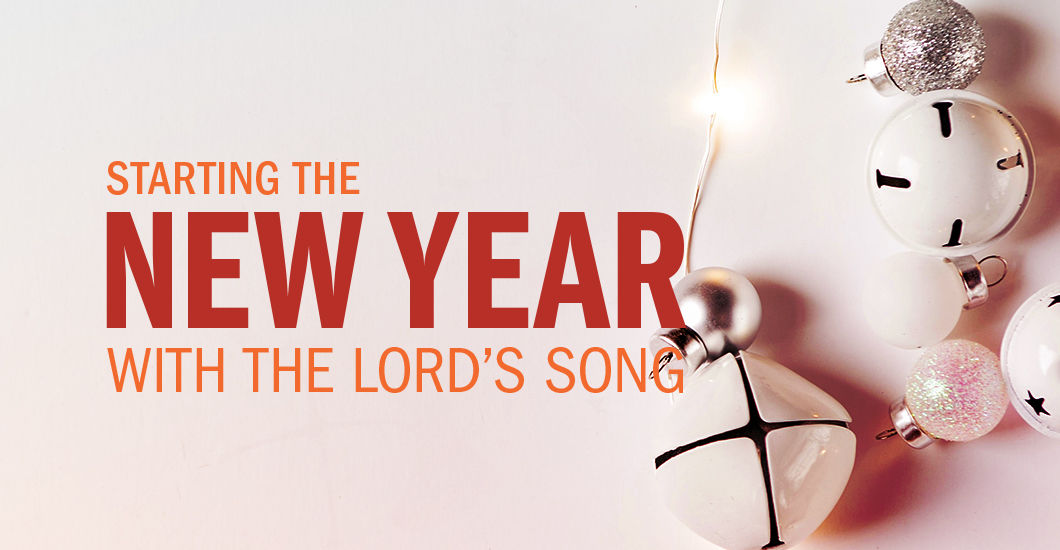
I have difficulty saying “No.” If someone is in need, I immediately want to respond and help. I do not like letting people down. However, this can quickly lead me to overcommitting and spreading myself too thin.
During an extraordinarily busy month with a lot of added stresses, I was reading Psalm 42 in my daily meditation. This verse stood out and grabbed my attention. “By day the Lord bestows His grace and at night I have His song …” (Psalm 42:9). I let the truth of this scripture settle into my soul and sink down deep.
The first part of the verse, “By day the Lord bestows his grace …,” reminded me of one of my favorite scriptures: “The favors of the Lord are not exhausted, His mercies are not spent; they are renewed each morning, so great is His faithfulness” (Lamentations 3:22-23). That passage has sustained me over many years. If I come to the end of a day feeling tired and discouraged, wondering how I am going to keep going, I recall these verses and tell myself, “Just get through this day, go to bed and in the morning God’s graces will be renewed.” No matter how depleted I feel, the Lord always provides what I need for the next day.
The key is to stay in the present moment, knowing that we have the grace for today but not yet for tomorrow. The Lord gives us the graces for whatever we are facing that very day. That is His promise. He will take care of tomorrow when it comes.
The next part of Psalm 42:9 says “at night I have His song.” My picture of this verse is God singing over us as we sleep. What is His song? His song speaks of His love and delight in creating us for a great purpose and of His loving care for us. (See at Zephaniah 3:17 for another scripture that talks about God singing over us.) His song renews us and gives us what we need, as we sleep.
Reading this psalm gave me consolation and strength during that very intense month when financial stresses and relational conflicts also demanded my time and energy. Although I felt overcommitted, whenever I felt tense I reminded myself “The Lord has provided the grace I need for today. Tonight He will sing His song over me, restoring my strength and giving me what I need to face the next day.” This beautiful image from the Word of God carried me through to the end of deadlines and commitments.
As we begin the new year, take heart and call this to mind. Whatever you are struggling with—the pressures of life, relationship problems, financial needs, job stresses—remember that God has the graces you need each day, ready and waiting. At night, He will sing His song of refreshment and love, healing and restoring your soul so you can face each day with courage and peace.
'
What’s the catch in seeking God’s will in your life?
Life in our family was a roller coaster ride of joys and sorrows. Love and laughter were mingled with financial crises, job losses, investment failures, housing troubles, relationship dilemmas, failure in exams and career quandaries. Although I often felt miserable during these trials and tribulations, my family would cling to Our Lord and He would intervene and calm the storm. However, it seemed the next hardship was never far away. I was born into a staunchly Catholic family that had enthusiastically embraced the Charismatic movement. My dad evangelized in small ways while running his own business and my mom’s piety and charity infused into everything she did, even her work as a lab technician. My siblings aligned themselves to the faith my parents shared with them, whereas I struggled to believe. My elder sister joined the Missionary Sisters of Mary Immaculate, Kerala, while my little sister pursued postgraduate studies.
When Uncertainty Strikes
My personal life was not going well either. Over the years, my studies and friendships were a constant battle. Although my dad insisted that we do yearly retreats and frequent follow ups, it did not make sense to me. Surprisingly, I progressed because so many people prayed on my behalf. When I completed my undergraduate degree in nursing I was appointed a tutor in the college and felt quietly satisfied at the recognition I had finally received.
A year passed by and my friends began to move away as their plans for the future unfolded. The position at work became redundant and I felt overwhelmed with uncertainty in deciding my next move amidst the unending suggestions from well-meaning friends and family. My parents observed my anxiety and suggested I give our Lord a chance to take a hand in my decision. With nothing left to lose I obliged.
For the first time in my life, I knelt with outstretched arms in the presence of the Eucharistic Lord. I confided my hopes and dreams, even though I thought they were impossible to achieve. Abandoning myself into His presence I prayed “I seek Your will for my life.” Reciting the rosary, I pleaded for our blessed mother to intercede. The moments that followed will always be cherished.
He Will Make a Way
As I knelt in prayer, our Lord spoke. He told me to pursue the higher studies I longed for but at a university, I did not desire. Since this university did not accept admissions until after all the other colleges had closed theirs, I felt fearful. What if the Lord’s plan should fail? I would also need to pass an entrance exam requiring months of preparation. Yet, in spite of my trepidation, I received the grace to obey His inspiration and plunged into prolonged study accompanied by sporadic prayer. When I finally took the exam I felt beset by doubt, certain I would not make it through.
As I journeyed home I felt low and hopeless but a message from the university changed that in an instant. Due to various issues, the exam results were cancelled and candidates had to prepare for another one. I was convinced our Lord was in control this time and doubled my efforts. My results were much better yet barely qualified me for the interview. I secured the 10th rank on the interview but, with only nine places being offered, I prayed for the next miracle. Of course, our Lord did not let me down. One of the students could not be accepted and I was taken in.
I realized that when you seek His will and lay the talents He has given you at His feet, He will offer you the best. I will never cease to be grateful that He granted an average student like me the chance to complete postgraduate studies, with high scores in the country’s top university. This was followed by an appointment as a lecturer—my dream job.
As the years pass, I have learned the beauty of seeking His will in each and every task. I became part of a Charismatic youth movement, involved in doing little things for His kingdom. Turning to the Lord and following His call has brought the greatest joy I could experience on earth. Trials have not stopped but now I am convinced it is for a greater good—deepening bonds within families, personal sanctification and invitation into prayerful relationship with our Saviour. Praise the Lord!!
“But strive first for the kingdom of God and his righteousness, and all these things will be given to you as well” (Matthew 6:33).
'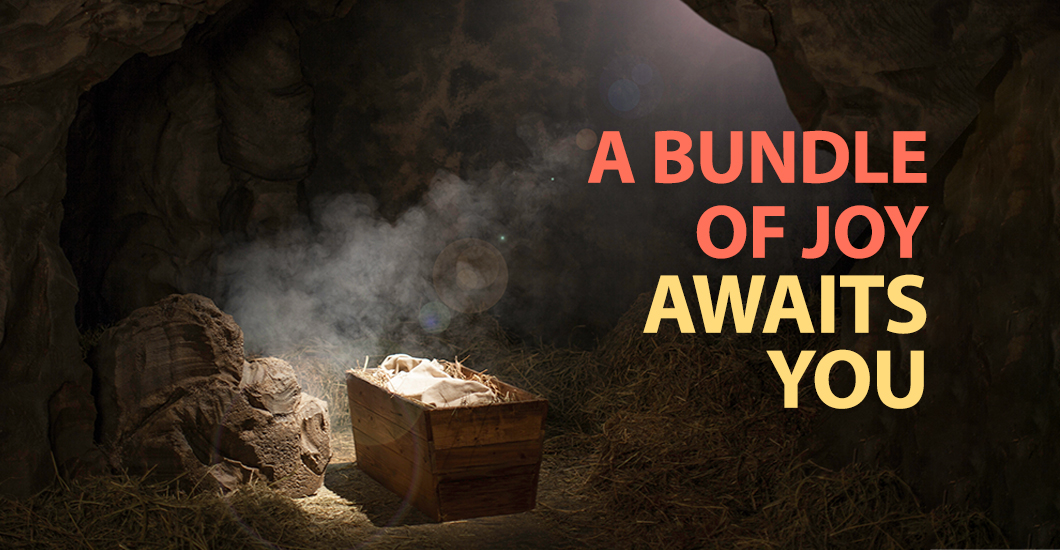
Do you really know the meaning of “Christmas?” Is it merely a celebration of the birth of Jesus?
The sun was already low when they reached the entrance of the cave. The young donkey that had left them at Joseph’s ancestral house to run around the town now gamboled joyfully around them. “Look,” said Mary to Joseph, “It is certainly the will of God that we should go in here.” However, Joseph was distressed because he had expected to be welcomed by his relatives at Bethlehem.
Although the cave was thickly stacked with bundles of straw, Joseph cleared some space to make a couch of rugs for Mary. Joseph was still apologizing for the poverty of the shelter but Mary was joyful and contented. Do you really know the meaning of “Christmas?” Is it merely a celebration of the birth of Jesus? When the time came for Mary to deliver the baby, Joseph retired to pray. At midnight, Mary was wrapped in an ecstasy of prayer surrounded by a great radiance. Everything, even inanimate objects, seemed to come alive in the light. The roof of the cave disappeared and a pathway of light opened above her, rising into heaven.
In this luminous light, she perceived choirs of heavenly spirits. Mary gazed downward adoring God, who had chosen her to be His Mother, as He lay on the earth before her in the form of a helpless newborn baby. The Redeemer of the world became a tiny child lying on the straw at the Blessed Virgin’s knees.
Mary gently lifted the child into her arms and enveloped Him in her veil. Angels prostrated themselves in front of her, adoring the baby. After the baby was tenderly wrapped in swaddling bands, Joseph laid Him in a manger filled with rushes, covered by a cloth. Mary and Joseph fondly admired Him, giving praise to God with tears of joy.
Blessed Anne Emmerich recorded this vision of the birth of Jesus in her book “The Life of the Blessed Virgin Mary.” Even the most beautiful paintings of Christ’s birth could not recapture the boundless jubilation she saw in reality. This tremendous joy was poured out on the world at the birth of our Saviour. We experience a portion of this happiness whenever babies are born. How rightly they are called “bundles of joy.”
Squirming for the Best Answer
One of my newlywed friends recently asked a curious question: How do I prepare to have a baby? I was a little bemused, and then I remembered the solemn occasion of our wedding and how I ardently prayed that God would bless us with little cherubs. When I became pregnant our joy knew no bounds but fear crept into my mind. I worried obsessively about the baby in my womb.
Of course, the first thing I did was turn to Google to find out what wisdom the internet had to reveal about pregnancy. I even downloaded the pregnancy app to get updates as my little one grew from the size of a cherry to a pumpkin. I took great care that I ate well each day— weighing out correct portions of protein, carbohydrates and fiber while consulting the list of essential nutrients. I even counted the number of nuts I was munching. All I thought about was the health of my baby.
Much to my trepidation, our first-born child was prematurely delivered after six months of pregnancy. Just three months later our world came crashing down when we found out that our beautiful little angel had suffered severe brain damage. As our little girl grew up unable to speak or even properly look at me, propped in a wheelchair, unable to do anything by herself, I debated endlessly about what had gone wrong? After all my careful groundwork why did such a thing happen to my little girl?
From then on, whenever I saw moms with healthy babies I wondered how they managed to achieve this miracle. By this time, I had also miscarried three times, which only aggravated my fears. When our fifth baby was conceived, I went to confession and poured out all the fears and dark thoughts that oppressed me. The kind priest spoke consoling words that I will never forget: “The baby in your womb is really in the hands of God. He takes care of all that your baby needs. You only have to trust Him and surrender your little one completely into His hands.” At that moment, I felt deeply moved as all my anxieties seemed to float away. Each day I prayed this simple little prayer: “God, my Heavenly Father, the baby in my womb is really in your hands. I know you are in complete control. Jesus, I trust in you!”
I had also been given a pregnancy leaflet “Blessed is the Fruit of the Womb” by Angel’s Army, which helped me take one day at a time and meditate deeply on Mother Mary’s journey through pregnancy until Jesus’ birth. I began to find precious gems in the joyful mysteries. Curiously, I felt that I could understand what Mother Mary had to go through in each mystery.
Precious Gems Along the Way
When Gabriel appeared Mary was full of apprehensions. Conceiving a child before marriage could result in being stoned to death and she had hoped to remain a virgin. Yet, she simply surrendered herself “Behold the handmaid of the Lord, Be it done to me according to Your word.” Her “yes” to become the mother of Jesus expanded into a “yes” to becoming a loving mother to the whole world, including you and me.
We, also, have great expectations that may differ from God’s plans. As we see in Mary’s dilemma, God really had a greater plan. You are precious in God’s sight and He is faithful in his promises. Simply surrender everything to Him and say “yes” confidently to His will.
After Mary conceived Jesus, she did not expect everyone to praise and serve her as mother of the Messiah. Instead, she hastened to help her cousin Elizabeth. This journey was tedious at the best of times; for a woman in the first trimester of pregnancy who may suffer morning sickness and extreme fatigue it would have been exhausting, The great zeal and compassion aroused in her heart by the descent of the Holy Spirit prompted her to reach out to Elizabeth, who was pregnant at an advanced age, living in seclusion with her mute husband. How often have we reached out to the needy when our own circumstances are undesirable?
Pierced Heart
On that cold night in Bethlehem, Joseph and Mary confronted rejection and loneliness with no other option but the shelter of a shepherd’s cave. Although Mary would have been more comfortable preparing peacefully for the birth at home, God’s plan took them to the City of David—Bethlehem. Did she ever complain?
During the last phase of pregnancy, I was often fatigued and in need of frequent rest. I wondered how Mary could endure it without a single complaint.
Often, I imagined Mary had the constant practical help of angels in her home in Nazareth. I pictured them helping her with the housework and cooking, changing Jesus’ diapers and amusing Him in his cradle. I even thought child Jesus might have delighted her by performing miracles in Nazareth. Instead, the holy family led a very ordinary life of work, prayer and recreation. We hear almost nothing about Jesus’ childhood and adolescence in the sacred scripture.
Here is the Saviour of the world, yet He is wrapped in swaddling clothes and resting in a poor manger. Mary said, “Yes, I believe.”
Here is the Son of God! Yet he needs to be taken care of like any other baby. Mary said, “Yes, I believe.” Here is a king whose reign will last forever, yet His parents are forced to flee to Egypt. Still, Mary said, “Yes, I Believe.” When the priest raises the blessed sacrament to speak the words: “Behold the Lamb of God …” Let Mary’s words reverberate in us: “Yes, I believe.”
Do you really know the meaning of “Christmas?” It is not merely a celebration of the birth of Jesus. The word itself reveals “Christ” “Mass,” which in turn spells out the sacrifice of Christ! Every day this sacrifice (Holy Mass) is offered around the world. When everything seems lost and no one truly understands or loves you, remember the most treasured “bundle of joy” awaits you in the Blessed Sacrament. Let us walk this “pilgrimage of faith,” holding the hands of Mary our mother and be filled with eternal joy.
'